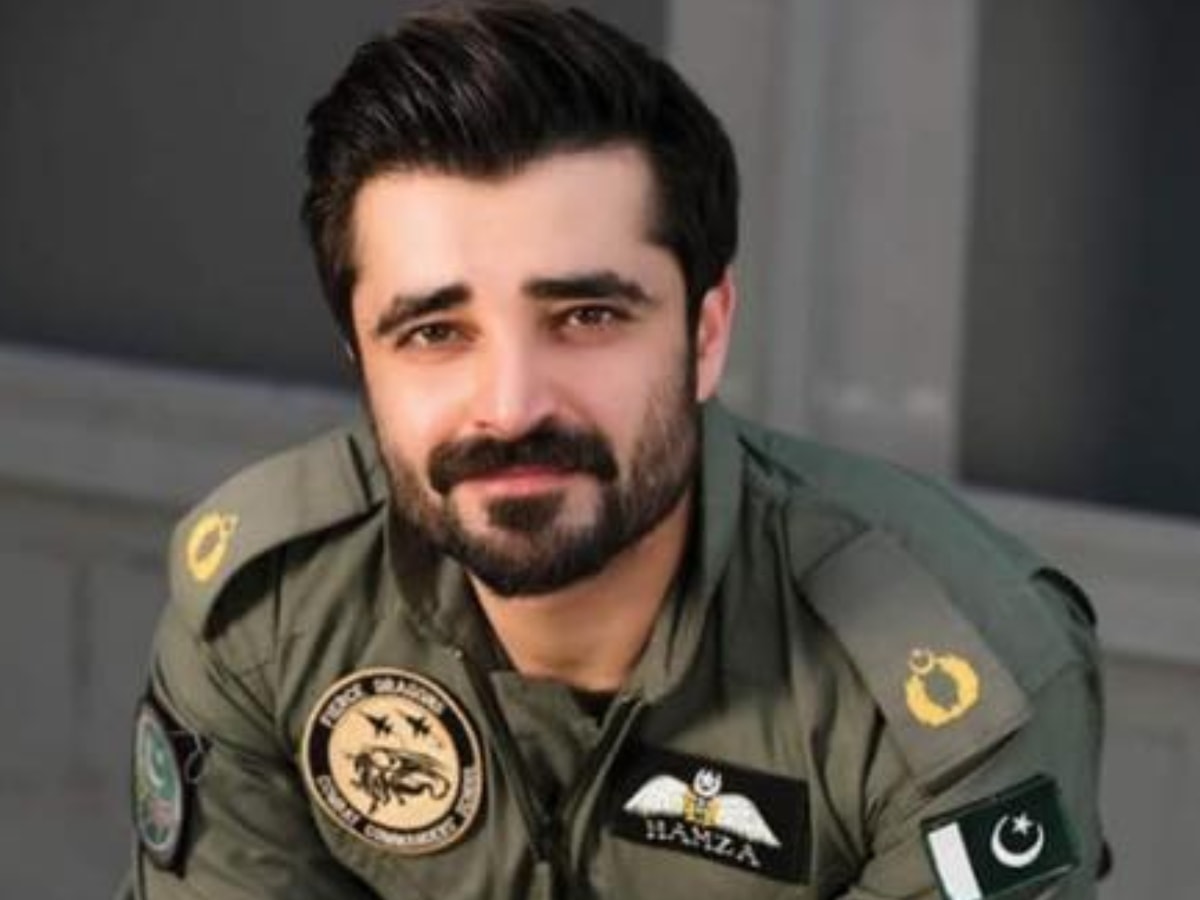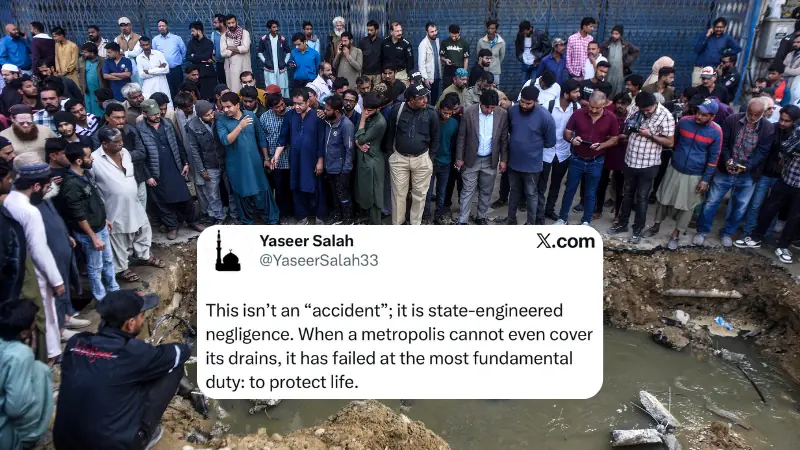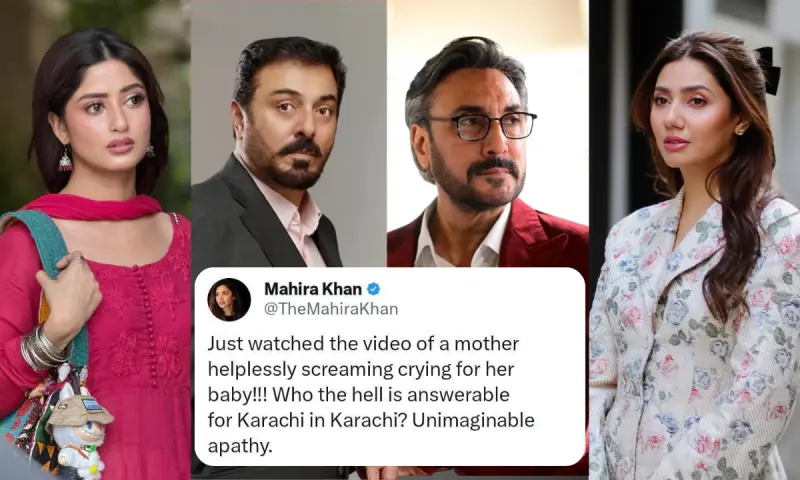I enjoyed Parwaaz Hai Junoon because of the comedy and that's not okay
Fighter pilots risk their lives and the happiness of their loved ones every day they go on duty. That’s a reality most people appreciate.
So when M&D Films announced that it wished to pay tribute to the Pakistan Air Force with their latest offering Parwaaz Hai Junoon, you’d expect it to do more than serve a lukewarm reminder of the debt of gratitude owed to Pakistan’s selfless defenders.
The impact of PHJ's message about the air force is diluted by preachy dialogue but it offers laughs and a somewhat dramatic love story that may prove to be memorable instead.
So what does PHJ try to tell us about the air force?
Minor spoilers ahead
In PHJ, Hamza (Hamza Ali Abbasi) is a recklessly valiant fighter pilot who falls for Sania (Hania Aamir) at the wedding of his best friend and pilot buddy Nadir (Shaz Khan). He inspires Sania to enroll in Pakistan Air Force’s cadet academy, where she meets Saad (Ahad Raza Mir) and several other trainees (played by Shafaat Ali, Sikander Vincent and Rachel Viccaji.)
The film follows Hamza and Sania’s blossoming romance as their respective air force careers progress.
Parwaaz Hai Junoon honours the air force with a story that tells the audience of the risk-laden path chosen by fighter pilots young and old.
As cadets such as Sania and Saad struggle to adjust to the rigours of air force training — the intense fitness regimes, the nerve-wrecking flight tests and a nearly fatal snow survival challenge — we see Hamza and Nadir demonstrate a willingness to put themselves in danger whenever the enemy strikes.
They are shown as unwaveringly committed to "the mission" no matter their circumstances — a new baby, a girlfriend whose mother demands they quit the air force or just the very real danger of losing their lives as Pakistan launched the deadly Zarb e Azb operation against terrorists.

And all the while, they experience love, insecurity, jealousy — the kind of regular people stuff that is usually not reflected in the personas we build up of our war heroes.
So as a film, PHF offers some fresh perspective on the air force in its attempt to humanise fighter pilots even as it reinforces the exalted status of martyred officers. The latter, however, remains the most important takeaway of the film: martyrs are immortal.
The film glosses over the messier aspects of fighter pilots' jobs: the frightening human costs of warfare, for instance, or the sociopolitical conditions that birthed “the enemy” that Hamza and Nadir so avidly fight. If PHJ presented a more nuanced view of war, it would have kept the story from playing out like a propaganda film.

PHJ also tries to shed light on the sexism female fighter pilots can face in the field — Sania is repeatedly bullied by Saad who doesn’t miss an opportunity to tell her that women aren’t fit for the air force.
The good news is that Saad is regularly corrected by his batchmates and Sania also bests him during lessons. The bad news is that Saad’s sexism is explained away as a symptom of young love: he simply did not know how to confess his feelings to Sania.
It’s troubling that bad behaviour towards the object of your affection (as well as other possible suitors like his batchmate Rashid) was also not criticised within the story.
Did the script do the story justice?
So how is it that a story that revolves around air force officers fails to impart a lasting message about their bravery?
While Parwaaz Hai Junoon may be watched by a sizable audience due to the crowd-pulling popularity of its actors but their performance often suffers due to forced dialogues and underwritten characters.
But first the good: It has to be said that the lighter part of the film were very effective in upping its entertainment value. The induction of the young cadets provided a lot of comic relief and comedian Shafaat Ali was well casted as the bungling Zain, whose many mess-ups are the cause of many a LOL moment. We don't even mind the sheer implausibility of his admission to any cadet college (save from a massive pawwa) because it saves the film from being a snooze for those who weren't moved by the more successful cadets' hero antics.

While the humour is well written, PHJ's scripts falters in more serious parts.
Hamza's dialogues as a star pilot often veer towards preachy and one wishes it didn't sound like he was spewing lines from a pamphlet. It kept viewers from seeing Hamza as a person they could relate to and presented him as a war hero, a character from the history books we only know through their quotes about our duty to the nation.
It doesn't get better when he's romancing Sania — most men struggle with romance in this film and Hamza doesn't have great game either. He spews bad air force puns and winks a lot but wins over Hania anyway.
It doesn't help that the film's special effects weren't up to the mark. The explosions weren't terrible but could have been more realistic and the cinematography of the air combat scenes was confusing — it was difficult to make sense of the action.

Then there are the parts of the story that aren't explained well enough. For instance, we never understand Saad's switch from angry misogynist to sincere lover-boy and how Sania forgives him for his repeated misdemeanours. But it's surprising that Sania appears to warm up to him at the first instance of better behaviour and he really doesn't have to atone for his actions.
Also, some events in the film required excessive stretches of the imagination, like the nurse holding a phone to Hamza's ear as doctors scrambled to save his life in an operation theatre and even Sania's selection in cadet college considering her physical fitness was subpar. Leaving one's American citizenship isn't exactly enough reason for admission.
PHJ may leave the audience with renewed respect for the air force but as a viewer, you may only truly enjoy its silly bits, and that's troubling for a film that's not a comedy.











Comments